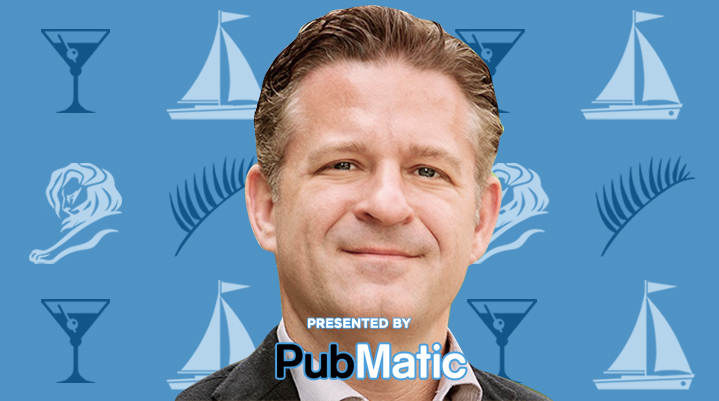Secure your place at the Digiday Publishing Summit in Vail, March 23-25
Disney’s Andrew Sugerman: ‘You don’t have to be on every platform’

Disney has a market capitalization of $163 billion, but it still doesn’t feel the need to be on every platform, Disney digital media head Andrew Sugerman said on an issue of the Digiday Podcast Cannes Edition.
“You don’t have to be on every platform,” he said. “Even Disney, this giant media and entertainment company, you have finite resources and focus and content development capabilities. We want to focus on the places that have the biggest impact.” Here are other highlights of the conversation:
Thinking platform first
“We are looking at creating stories that are made for the digital audience. We’re not looking to take something made for the big screen and push it to a mobile device.”
Working with Facebook
“We’re constantly looking at ways to work with them on monetization. We’re blending creative ways of taking Disney [intellectual property], data and a third-party brand strategy and putting it together on digital-first content. That’s working closely to find a creative solution that increases monetization.”
Snapchat is trial and error
“Snapchat has for us been an emerging platform. It’s of a different scale [from] Facebook and YouTube. Audiences engage with content in a different way. We have shorter engagement periods. We have slightly different content that’s going to work on that platform. It’s been trial and error.”
More in Media

The case for and against publisher content marketplaces
The debate isn’t whether publishers want marketplaces. It’s whether the economics support them.

Urban Outfitters shifts its influencer strategy from reach to participation
Me@UO is Urban Outfitters’ new creator program leverage micro-creators with smaller, engaged communities that are passionate about the brand.

Media Briefing: Without transparency, publishers can’t tell if Google’s Preferred Sources feature benefits them
Six months in, Google’s Preferred Sources promises loyalty-driven visibility, but leaves publishers guessing at the traffic impact.








